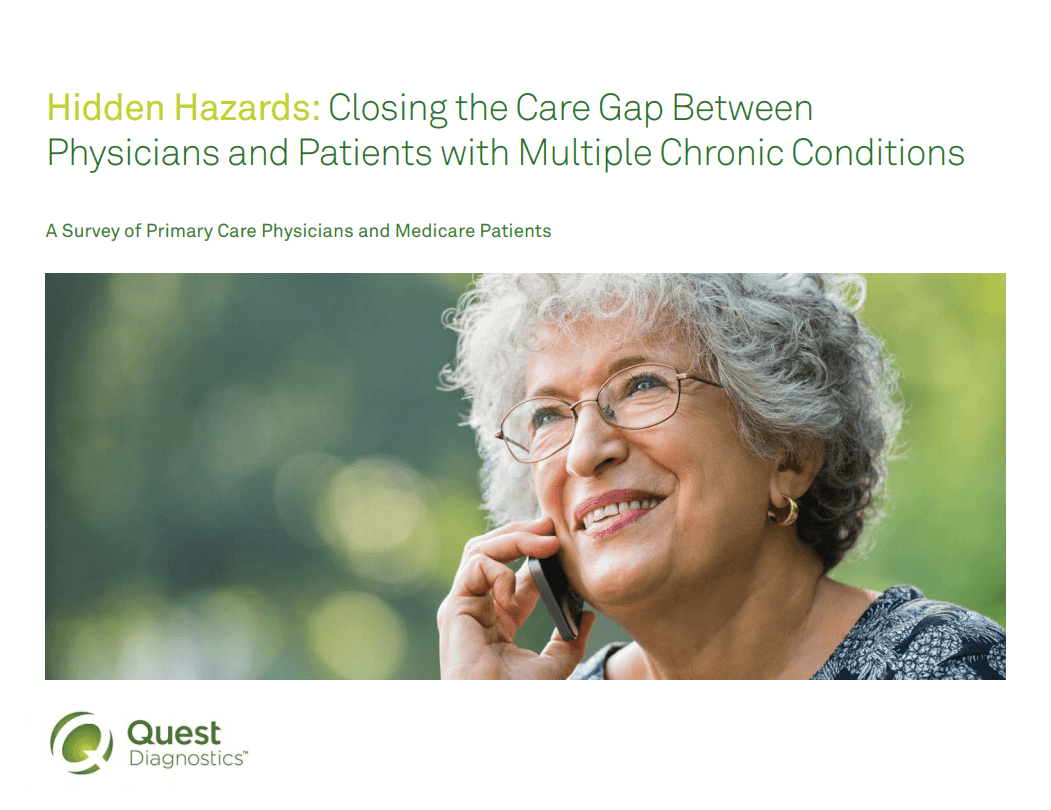Three in four Americans over the age of 65 have two or more chronic health conditions, such as diabetes, hypertension, arthritis, or cancer. These individuals may struggle to manage their health in a way that allows them to maintain their wellness and independence.Given the complexity of multiple chronic conditions physicians may also be challenged to provide adequate care for these individuals, given that Medicare covers only one Annual Wellness Visit per year. During the face-to-face time in these interactions, patients may feel too time pressed to share, or understand the necessity of sharing, all of the information pertinent to their overall health. Physicians may not have time to probe on potential health challenges or socio-behavioral issues that can influence outcomes.In order to better understand whether these limitations create gaps in care – and what those gaps mean to patient health -- we commissioned independent research with primary care physicians (PCPs) and Medicare patients with multiple chronic conditions.

The findings, presented in our report, “
Hidden Hazards: Closing the Care Gap Between Physicians and Patients with Multiple Chronic Conditions,” show that physicians feel unable to address patients’ comprehensive needs. Physicians cite time limitations, while patients’ professed satisfaction with their care may mask social and behavioral risks and needs. These findings suggest that the traditional medical care model of an annual physician visit may be insufficient for Medicare patients with multiple chronic conditions.
- Nearly all physicians (95%) said they entered primary care to care for the “whole patient.”
- Yet, 85 percent say they are too pressed for time to address complex clinical issues
- 66 percent say they don’t have time to address social and behavioral issues, such as loneliness or financial concerns that could affect their patients’ health
- More than four in ten patients (42%) believe that seeing their physician only 1-2 times a year to manage their multiple conditions “is just not enough.”
Chronic Care Management (CCM) services are one of the ways in which Quest is moving beyond medical office walls to aid providers in assessing individuals and populations and closing gaps in care. These services involve non face-to-face interaction (such as by phone) between a Quest nurse and a qualified patient. CCM services can supplement the care physicians provide to patients on Medicare with multiple chronic conditions. Typical areas of focus include medication management, coordinating visits with hospitals and other providers, personalized guidance on setting health goals.Quest’s CCM services help illuminate potential health risks before they occur, so individuals can retain their health and independence longer. With improved monitoring, individuals with multiple chronic conditions may expect a better quality of life.CCM services are reimbursed by the Centers for Medicare & Medicaid Services (CMS) for Medicare beneficiaries with two or more chronic conditions. CMS estimates 70 percent of Medicare beneficiaries—roughly 35 million people—are eligible for CCM services, such as those supplied by Quest.Quest’s CCM services are part of the company’s Extended Care offerings, which focus on closing gaps in care outside the physician’s four walls. Quest Diagnostics’ goal is to deliver services outside the traditional doctor’s office or hospital setting that can help identify and pre-empt health issues in at-risk populations, improving value, quality and outcomes. In addition to CCM services, Quest’s Extended Care offerings include home-based risk assessment through its MedXM business and retail care through relationships with Walmart and Safeway.Find out more at
QuestDiagnostics.com/CCM.
Your Privacy Choices





